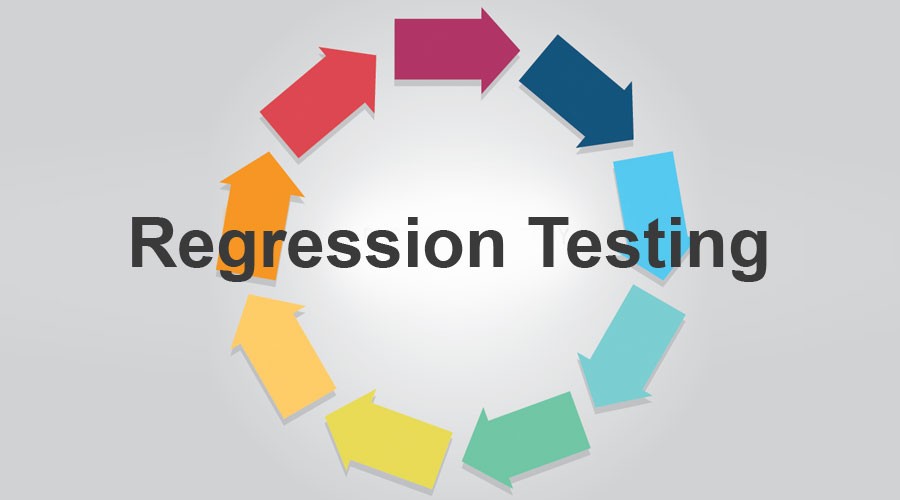Why Regression Testing Is Crucial for Maintaining Software Quality
 Shivanshi Singh
Shivanshi Singh
Introduction
In the dynamic landscape of software development, maintaining quality and ensuring that new updates or bug fixes do not negatively affect existing functionality is crucial. This is where regression testing plays an integral role. It helps verify that recent changes in the software, whether they are enhancements, patches, or fixes, haven't introduced any new bugs or broken existing features.
What Is Regression Testing?
Regression testing refers to the process of re-running previously conducted tests on the updated software to ensure that the older functionalities remain intact after any new code changes. Its primary goal is to catch unintended side effects of changes, providing a safety net for developers and testers to identify potential issues early in the software development lifecycle.
Why Is Regression Testing Important?
Ensures Software Stability
Any change to a software application, no matter how small, can potentially disrupt previously working features. Regression testing ensures that even after bug fixes or new feature additions, the core functionalities remain stable and operational.Detects Unintended Bugs
Software applications are complex, and changes in one part of the code can unintentionally affect other parts. Regression testing helps detect these unexpected side effects by re-executing test cases on both modified and unmodified parts of the software.Saves Time and Effort
While creating new tests for new features is essential, re-running old test cases can save significant time and effort. Automated regression testing can efficiently handle repetitive testing tasks, making the testing process faster and more reliable.Supports Continuous Integration and Agile Development
In an agile environment where continuous integration (CI) and frequent code updates are common, regression testing ensures that rapid development cycles do not compromise the overall product quality. It allows development teams to move faster by catching defects early before they reach production.Improves Customer Experience
End-users expect reliable, bug-free software. By preventing issues from slipping through due to the introduction of new features or updates, regression testing improves user satisfaction by delivering consistent performance.
Types of Regression Testing
Corrective Regression Testing
This approach is applied when no changes are made to the software’s existing code and the test cases remain unchanged. It focuses solely on ensuring that the software continues to function as expected.Progressive Regression Testing
When the codebase undergoes changes, progressive regression testing involves writing new test cases for the updated code while also verifying that the changes have not adversely affected the rest of the software.Selective Regression Testing
In selective regression testing, only a subset of test cases is executed, focusing on the most critical functionalities that are likely to be impacted by recent changes.Retest-All Regression Testing
This involves testing the entire application by running all the test cases in the test suite. While comprehensive, it can be time-consuming and resource-intensive, which is why it's usually employed sparingly.
Best Practices for Regression Testing
Automate Where Possible
Given the repetitive nature of regression testing, automation can significantly speed up the process and reduce human errors. Automated tools can re-run test cases quickly and provide immediate feedback to developers.Prioritize Test Cases
Not all parts of the software may need regression testing after every change. Prioritize critical test cases based on the impact of changes, system functionality, and previous bug history.Maintain a Reusable Test Suite
Continuously updating and optimizing the test suite with relevant and reusable test cases ensures better coverage and more effective regression testing.Regular Testing with Continuous Integration
Integrating regression testing into your CI pipeline allows teams to identify defects immediately after new code is merged. This proactive approach ensures faster resolution of issues.
Challenges in Regression Testing
Test Case Management
Managing a large number of test cases can be complex, particularly as the software grows. Without proper organization and prioritization, the test suite can become bloated and inefficient.Time-Consuming Process
Depending on the size and complexity of the application, regression testing can be time-consuming, especially if automation isn't leveraged.Resource-Intensive
Comprehensive regression testing can consume considerable resources, including hardware, software, and personnel. Automation helps, but a balance must be struck between thoroughness and resource allocation.
Conclusion
Regression testing is an indispensable aspect of maintaining software quality throughout its lifecycle. Whether you're a developer or enrolled in a software testing training institute in Delhi, Noida, Lucknow, Pune, or other cities located in India, understanding and implementing regression testing is crucial for delivering high-quality software. By ensuring that new changes do not compromise existing functionality, it protects against unintended bugs, stabilizes the application, and improves customer satisfaction. When integrated with automation and continuous integration practices, regression testing becomes even more effective, ensuring software quality without slowing down the development process.
Regular, well-structured regression testing is not just a technical necessity but also a strategic tool that supports faster, more reliable releases in today’s competitive software market.
Subscribe to my newsletter
Read articles from Shivanshi Singh directly inside your inbox. Subscribe to the newsletter, and don't miss out.
Written by

Shivanshi Singh
Shivanshi Singh
I am a Digital Marketer and Content Marketing Specialist, I enjoy technical and non-technical writing. I enjoy learning something new. My passion and urge is to gain new insights into lifestyle, Education, and technology.